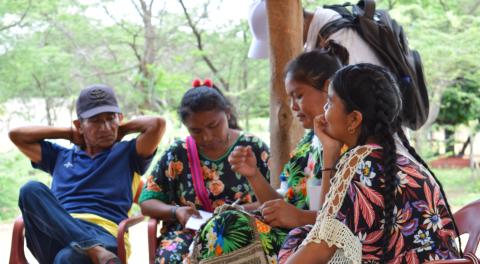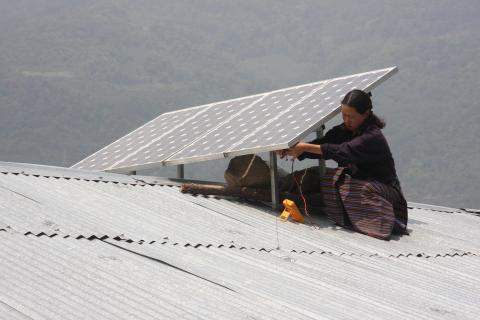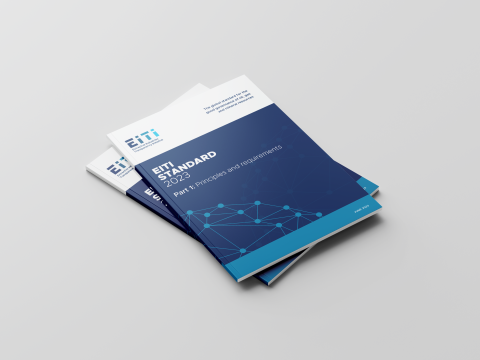
EITI Report highlights PNG’s reliance on extractive sector
Insights from PNG's latest EITI reporting
Findings underscore need to improve tracking of revenue flows to clarify fund utilization.
Papua New Guinea’s Liquefied Natural Gas (PNG LNG) project came online in 2014, increasing government revenues and reliance on the extractive sector. According to PNG’s EITI Report for 2014, the country saw 8% economic growth in 2014, 91% of which was attributed to the extractive industries. This growth was largely driven by the first exports from the PNG LNG project, the largest investment in PNG to date worth USD 19 billion. The report also shows that oil, gas and minerals comprise the majority of total exports, contributing 84 % of total exports in 2014 compared to 80 % in 2013. Likewise, the sector’s contribution to total government revenue in 2014 increased by 41% compared to the previous year, mainly to increased government collection of corporate income tax and group tax which almost doubled in 2014. This increase is also attributed to the PNG LNG Project.
Challenges in tracking revenue flows
The country’s reliance on the extractive industries underscores the importance of monitoring revenue flows from the sector. The 2014 EITI Report, however, reveals challenges related to such monitoring and points to reform needs. The report explains that out of the 27 revenue streams applicable to the extractive sector, only corporate income tax and dividends are recorded in the national budget. Other revenues are recorded in financial reports of various agencies, without a clear explanation of how they are considered in the budget process. Tracking revenue flows to subnational units also remains difficult due to capacity and administrative constraints at the local level. Subnational royalties are held in trust by the government but details of these accounts could not be identified. Consequently, trust account spending is not included in the State Budget Expenditure. With the exception of two state-owned enterprises, Ok Tedi and Petromin, other SOEs do not have audited accounts for 2014. This includes the National Petroleum Company of PNG which owns a 16% interest in the PNG LNG project.
EITI Report sheds light on royalty payments to landowners
Oil and gas companies are required to pay royalties to landowners in PNG based on production figures. This is paid by companies to the state through the Department of Petroleum and Energy (DPE) which then transfers payments to the Mineral Resources Development Corporation (MRDC) who should distribute payments to landowners. The status of these landowner royalties has been the subject of controversy in PNG particularly around the PNG LNG project. Based on figures provided by Oil Search and ExxonMobil, the 2014 EITI Report shows that a total of USD 39.8 million in royalties was reportedly paid to DPE. However, the report confirms that the funds are held in trust and have not been distributed to beneficiaries due to uncertainties over the identity of rightful beneficiaries.
Improved levels of disclosure
The 2014 EITI Report tracks the progress of recommendations from the 2013 EITI Report, noting the improvements in quality of production data provided by the Mineral Resources Authority and the disclosure of revenue data from MRDC. The 2014 EITI Report is also the first to record consolidated information on payments and receipts of revenues related to the PNG LNG project.
For further information about the EITI Papua New Guinea, please visit the country page on the EITI website and Papua New Guinea’s own EITI website.
Photo credit: PNG LNG.



